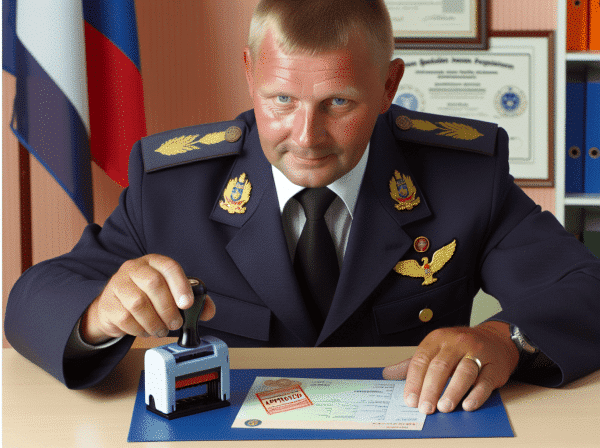
Navigating the approval process of an I-130 petition is crucial for individuals seeking family-based immigration to the United States. This section breaks down the essentials and implications of the I-130 approval.
The I-130 form, officially known as the Petition for Alien Relative, is an essential document filed with U.S. Citizenship and Immigration Services (USCIS). It is the first step for a U.S. citizen or permanent resident to sponsor a relative for immigration. Key categories of eligible relatives include spouses, children, siblings, and parents.
An approved I-130 petition establishes a qualifying relationship between a U.S. sponsor and a foreign relative. However, approval does not grant any immediate right to enter or remain in the U.S. It primarily:
Approval times can vary substantially depending on the type of relationship and the USCIS workload. It is a pivotal step but only one of several in obtaining lawful permanent residence. For further steps applicants can check “what happens after my I 130 is approved“.
After an I-130 petition is approved, the beneficiary must navigate several important procedures to obtain a visa to enter the United States.
Once the United States Citizenship and Immigration Services (USCIS) approves the I-130 petition, the next step for the beneficiary is to file a visa application. They must submit Form DS-260, the Immigrant Visa Electronic Application, online at the Consular Electronic Application Center (CEAC).
After the DS-260 is submitted, the National Visa Center (NVC) will process the application. The NVC will also collect the required visa fees and supporting documentation. Beneficiaries should closely monitor their email and mail for notifications from the NVC regarding further instructions.
During consular processing, the beneficiary attends an interview at a U.S. embassy or consulate in their home country. Before the interview, they must complete a medical examination and gather required documents, such as passport photographs, criminal records, and financial records. The consular officer will decide on the visa application after the interview.
Understanding the legal requirements and procedures is crucial for those considering traveling to the United States after an I-130 Petition for Alien Relative approval.
Upon approval of an I-130 form, the beneficiary cannot immediately travel to the United States. They must wait until their green card application is processed and approved. Once approved, the beneficiary has six months to enter the United States. It is also imperative to have proof of COVID-19 vaccinations, as visitors entering through land ports of entry and ferry terminals on the U.S.-Mexico and U.S.-Canada borders must be fully vaccinated.
At the port of entry, individuals will be inspected by Customs and Border Protection (CBP) officers. Travelers should be prepared to present their:
CBP officers will determine the admissibility of the traveler after reviewing the presented documents and conducting necessary checks. The individual will be permitted to enter the United States if deemed admissible.
Upon arriving in the United States with an approved I-130 petition, individuals have specific pathways to obtain legal status. The pivotal steps are marked by Adjustment of Status and obtaining Conditional Permanent Residency where applicable.
Adjustment of Status (AOS) is how an individual transitions from holding a non-immigrant visa to becoming a lawful permanent resident without returning to their home country to complete visa processing. Individuals with an approved I-130 petition must file Form I-485, Application to Register Permanent Residence or Adjust Status. Numerous criteria and documentation requirements must be available, including an affidavit of support, evidence of an eligible visa classification, and an immigrant visa number.
Conditional Permanent Residency is granted to individuals who obtain their green card through marriage to a U.S. citizen or permanent resident, provided the marriage was less than two years old at the time of approval. These individuals receive a green card valid for two years. They must file Form I-751, Petition to Remove Conditions on Residence, within 90 days before their conditional green card expires to maintain their permanent residency status. Failure to file before the deadline may result in resident status loss and the initiation of removal proceedings.
Documentation for Form I-751 must include evidence that the marriage is bona fide, such as joint financial statements, lease or mortgage documents in both names and birth certificates of children born to the couple, among other documents.
Obtaining approval for Form I-130, Petition for Alien Relative, is a milestone moment for families seeking reunification in the United States. This approval can significantly affect the principal applicant’s family members, especially if they are eligible for derivative benefits.
Derivative beneficiaries are certain family members of the principal immigrant visa applicant. They may be eligible to apply for their immigrant visa based on the approved I-130 petition of the principal applicant. This category typically includes the principal applicant’s spouse and unmarried children under the age of 21. Derivative beneficiaries must understand that although they are included in the petition, each person must satisfy visa requirements separately.
Generally, an approved I-130 petition indicates an intention to immigrate to the U.S., which conflicts with the temporary nature of a visitor visa. Therefore, those with an approved I-130 must wait abroad until their immigrant visa or green card is granted.
They may enter the U.S. if they can prove nonimmigrant intent to the satisfaction of the immigration officer at the port of entry. This proof would include strong ties to their home country, evidence of returning home, and the purpose of a short visit, such as family events or tourism.
If granted entry, the visitor must adhere strictly to the terms of their visa. Any indication of an overstay or status change could negatively affect their pending green card application.
They must enter the United States within six months of the visa issuance to maintain its validity.
Valid evidence includes:
Visitors must be prepared to present this information and may be questioned about their plans during border inspections.
No additional pages found.